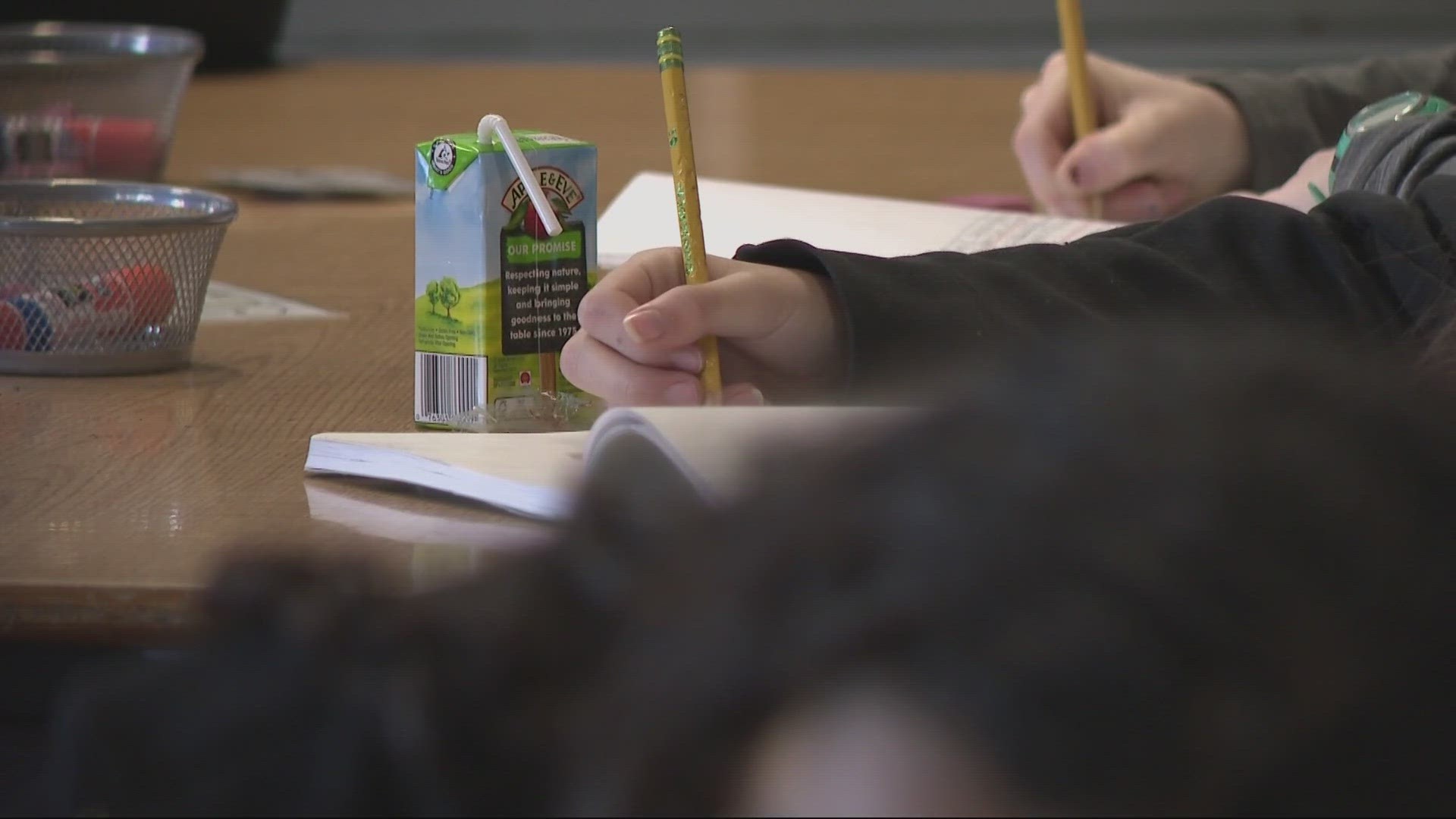PORTLAND, Ore. — Many students nationwide are recovering from lost learning during the COVID-19 pandemic, according to new research from professors at Harvard and Stanford, but Oregon was the only state out of 30 in the study where elementary and middle school students continued to lose ground in math and reading from 2022 to the 2023 school year.
Oregon students are now three-quarters of a year behind in math, and two-thirds of a year behind in reading.
"One challenge that many districts are facing is high absenteeism," said Harvard professor Thomas Kane, one of the researchers.
“Kids in Oregon have not come back to school,” added Maika Yeigh, an associate professor of education at Lewis and Clark.
Both believe that school districts need help from city leaders to push students to come back to classrooms, but that's just one of the possible reasons for Oregon's lagging results that Kane and Yeigh mentioned. Another roadblock to recovery: school districts spend federal funds in different ways.
"We handed out $190 billion to school districts around the country and said 'here, you figure it out,"' Kane said.
Some school districts spent funds to retain staff, while others spent money to replace in-person class time. New research shows that programs like tutoring helped students bounce back.
"I think it definitely should be used to target learning losses – like figuring out what a kid needs, and then directing resources to that," Yeigh said.
The backslide in Oregon scores could also stem from staff shortages and the use of technology, Yeigh said. While technology is impactful, there are instances where it is overused.
“If you’re sitting and working on an iPad all day or a Chromebook all day, you’re really not engaging in learning in the same way,” Yeigh said.
Oregon is also currently combatting both a teacher shortage and substitute teacher shortage, Yeigh said.
The lagging recovery isn't universal across the state; some Oregon districts did see students begin to bounce back, and the state's largest district, Portland Public Schools, saw improvements in students' math scores. There was no data for reading.
But other school districts like Salem-Keizer and Tigard-Tualatin remain a full grade level or more below 2019 levels for the district.
In a statement, the Oregon Department of Education said it's not satisfied with the results.
In 2023 the legislature approved $100 million for new state funds which will be directed to reading development. Students can receive tutoring and summer school through those funds. In this year's short legislative session, ODE added in a statement saying it's working with the governor’s office to create a budget request, asking for $50 million for summer learning to mitigate learning loss.
Quick action is vital, Kane said, to ensure Oregon students do not fall further behind when federal relief funding ends in the fall. However, he added, school districts should begin notifying families now if students are behind in school, so families can make plans for summer learning or tutoring.
Both Kane and Yeigh added that with the new data, schools will have a better idea of what's effective and can better target funds to efficiently help students recover lost learning.

